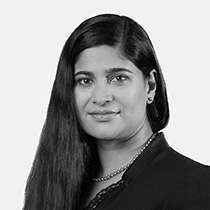The funds are managed to meet the needs of more conservative investors drawing an income from their portfolio over an extended period, and to provide a well-considered balance between risk and return. Both funds had a reasonable third quarter in 2020 (Q3-20), returning 1.7% and 1.8% respectively. All asset classes, bar South African property, contributed positively.
On the domestic front, the South African economy contracted severely in the second and third quarters of the year as the brunt of Covid-19 lockdowns impacted activity. We expect a tepid recovery as the year progresses and only see the country returning to 2019 levels of GDP by early 2023. Globally, the virus seems to be staging a second wave and there are many large uncertainties, including the outcome of the US elections, the Brexit negotiations, and geopolitical tensions between China and various countries. In general, however, the US, UK and Chinese economies seem better positioned to recover from Covid-19 due to quicker access to vaccine treatments, better support from government programmes and more coordinated economic policies.
EQUITY EXPOSURE INCREASED
Effective global exposure in the funds has increased steadily from the beginning of the year to 28% (Capital Plus) and 27% (Balanced Defensive). We have mainly increased our holding of global equities, as the other asset classes look expensive (global bonds) or face structural headwinds (global property). While certain equity indices such as the US S&P 500 look expensive and have rallied hard from the bottom, it has been a narrow market ,with only a few shares delivering the bulk of the performance. There remain many compelling valuation opportunities in the broader market.
We have also increased our local equity allocation. The majority of our exposure is to attractively valued rand hedge shares, such as British American Tobacco and Anheuser Busch InBev. Despite South Africa’s ban on the sale of alcohol and tobacco during the hard lockdown period, these businesses have generally managed to trade their products in many other countries. We think these businesses are defensive and can show real revenue and earnings growth in hard currencies over the medium term. Most importantly, they are strong free cash flow converters and will use their cash to de-lever their balance sheets and return cash to shareholders.
This combination of decent earnings growth and dividend returns is attractive for our portfolios. We have also been adding to domestic businesses that we think have resilient franchises and healthy balance sheets, and can deliver earnings growth in a constrained economy. Low expectations are baked into market prices and if we see a better-than-anticipated recovery in earnings bases, we think there will be a robust real performance from our selected basket of equities.
DEBT A CONCERN
The increase in global and local equity allocations has been funded from our South African fixed income allocation. South African bonds still offer very attractive real yields, especially in the long end of the curve, and the funds still have healthy allocations to a mix of government bonds, inflation-linked bonds and corporate credit. But we also recognise that a rising government debt burden and widening fiscal deficit will require some serious intervention by the Finance Ministry. While government acknowledges the seriousness of the economic situation, we think that there is a non-negligible risk that we do not see the decisive policy changes and expenditure reform plans the economy needs to avoid a debt trap.
We remain very cautious on South African property and have not increased our exposure here. Most real estate companies entered the Covid-19 crisis with stretched balance sheets. Pressure on net rental income is likely to intensify and we think a capital restructuring will be necessary for many counters. We had a small allocation to South African property, and we have seen a significant derating of this sector. Despite this, we don’t think valuations are compelling enough to increase our allocation.
TO CONCLUDE
The funds have found it difficult to beat their inflation-plus benchmarks, as very few asset classes have delivered the required level of real returns in the last five years. Risk assets, in particular domestic equity and domestic property, have shown sub-inflation to negative returns over this period. Safer assets, such as South African cash and South African fixed income, have outperformed domestic risk assets on a relative basis. However, rising risks for domestic bonds and cash returning less than 4% mean that these assets have become less appealing. Where we are now, the outlook for risk assets is certainly not rosy but valuations more than reflect this. We have thus increased our risk asset exposure. We remain mindful of the funds’ dual mandate and use asset class diversification, as well as appropriate put protection, to preserve capital. While the outlook remains uncertain, we believe this creates attractive investment opportunities and that a considered increase in risk exposure is justified at this point to enable the funds to deliver on its mandated inflation-plus return hurdles in the future.
Note: For more detail on appropriate investment strategies for retired investors, download the Corolab: The Income and Growth Challenge investment guide.
 South Africa - Personal
South Africa - Personal



